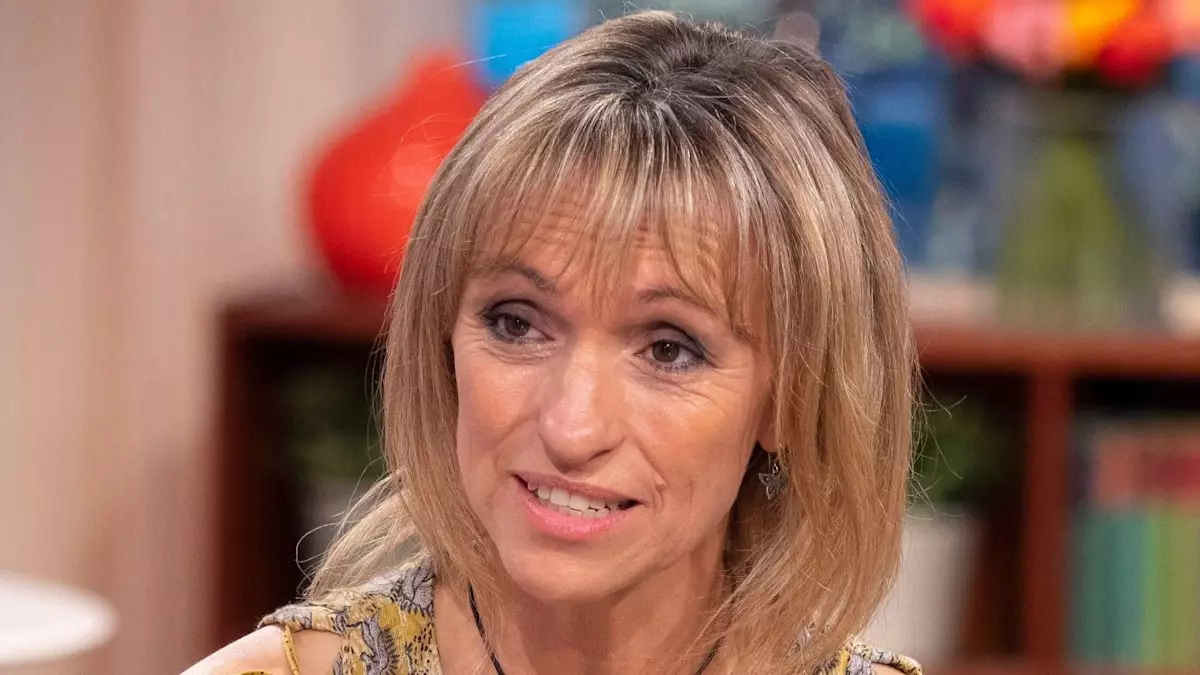In a poignant revelation, television presenter Michaela Strachan opened up about her harrowing experience with breast cancer, which began in 2014. Appearing on “Vanessa on Friday,” the beloved host of “Springwatch” shared a personal narrative that encapsulates the emotional turmoil and physical challenges she encountered following her diagnosis and subsequent double mastectomy. Strachan’s openness provides not only a glimpse into her struggles but also challenges the societal perceptions surrounding breast cancer treatment.
Emotionally Charged Reflections
Strachan’s initial attitude towards her breasts underscores a broader societal issue regarding women’s identities and body image. She revealed that although her breasts were not central to her self-identity, the impending removal spurred an unexpected emotional crisis. “When they said they were going to take them away, they suddenly became more important than I thought they were,” she admitted, exemplifying how cancer diagnosis can drastically transform one’s emotional landscape. This insight underlines the reality that health crises often compel individuals to confront their self-identity and value constructs.
This reaction reveals not only personal sentiments but also highlights a pressing need for systemic change in how women are treated medically. Strachan’s hope for a future where surgical removal of breast tissue is regarded as a relic of a bygone era speaks volumes about the current medical paradigm. She wishes for more humane and innovative treatment methods that avoid such invasive measures.
The Brutality of Treatment
Describing the mastectomy as “brutal,” Strachan forcefully encapsulated what many women experience during their treatment journeys. It’s not merely a physical alteration but an upheaval of personal narrative and identity. “Of course, I’d rather not have boobs and be here than have them and be worried that cancer is going to come back,” she acknowledged, reflecting a pragmatic approach to her health while still grappling with the harsh realities of her situation. This mindset invites a deeper conversation about the value placed on breasts in society, which are often tied to femininity and attractiveness.
Her candid admission regarding the violent nature of such medical interventions exemplifies a critical oversight in conventional healthcare narratives—often, the focus is strictly medical, neglecting the emotional scars that accompany treatments like mastectomies. Strachan’s reflections suggest a paradigm shift is overdue, one that prioritizes not just survival but the quality of life and emotional well-being post-treatment.
The Long Road to Recovery
Recovery from a double mastectomy is fraught with challenges, and Strachan’s account sheds light on the often forgotten six-week journey of rehabilitation. Her acknowledgment of the extensive physiotherapy required underlines the reality that recovery is a multifaceted process involving both physical and emotional healing. While she stated that more than a decade later, she frequently forgets her cancer battle, the scars—both visible and invisible—remain a part of her evolving narrative.
By encouraging open conversations about the psychological impact of mastectomy, Strachan is performing a vital social function: bringing to light the often-silenced experiences of women recovering from breast cancer. Such discourse can foster community, allowing others in similar situations to feel seen and validated in their journeys.
A Complex Personal Landscape
Adding to the depth of her journey is Strachan’s relationship with Nick Chevallier, which began amidst the heartbreak of loss. Strachan’s decision to remain unmarried is indicative of her view on relationships and the societal pressures that often dictate marital status. “We don’t see the need to get married. It’s an awful lot of expense, isn’t it?” she remarked, pointing out the often-overlooked practicalities involved in romantic commitments. This perspective serves as a reminder that relationships can be defined on one’s own terms, unshackled from societal conventions.
Her embrace of a blended family, full of challenge yet rich in potential, speaks to the multifaceted nature of modern relationships. Strachan’s journey through the tribulations of personal identity, loss, and resilience paints a vivid picture of a woman who navigates life’s complexities with courage and candor.
In sharing the intricacies of her life, Michaela Strachan does more than recount her story; she ignites a conversation that resonates with anyone who has confronted the capriciousness of health, identity, and love.

